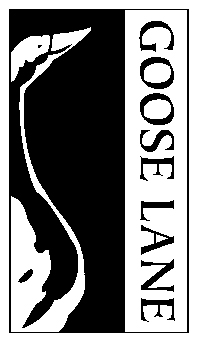Excerpt from Alexa!
We could not let women’s history month pass without acknowledging Alexa McDonough, the first female leader of a mainstream Canadian political party. Alexa helped transform Nova Scotian and Canadian politics, but she did a lot more than that too. In recognition for everything she has done, we wanted to share an excerpt with you from her forthcoming authorized biography Alexa! Changing the Face of Canadian Politics.
It was the Spring of 1976 and Alexa McDonough — chair of the YWCA’s newly formed social action committee — and a group of women had made plans for a women’s centre in Halifax. They just needed to find a home for it.

Photo Credit: Nicola Davison
The YWCA owned a large, rundown heritage house next to its main facility that it had no use for, could not afford to maintain, and did not want to pay to insure. The board decided to tear the building down and, at least temporarily, turn the land into a parking lot for downtown commuters.
The board had decided to do that until Alexa, her sister-in-law, Jean Shaw, and Peggy Mahon — “we were the three amigos,” Alexa said — cajoled its members into keeping the wrecker’s ball at bay long enough for them to put together financing and a plan to restore the structure as a women’s centre. No one expected they would succeed. “And so we said, ‘Oh yeah, well, just watch us.’ And we did,” Alexa remembered with a laugh.
They raised most of the funding they needed in “nickels and dimes.” Because it was to be a women’s centre, they were committed to the notion women should also restore the building. At the time, there were no women qualified to take on such specialized jobs, so Alexa went back to her former social planning department boss, Harold Crowell, and enlisted his help devising a job training scheme that they pitched to the federal government. “We said, ‘Every city has these old houses that are going to be torn down for parking lots. We need to train women in these skills so they can restore those buildings and turn them into useful places.’” In the afterglow of International Women’s Year, Alexa recalled, Ottawa established “restoration workers” as a new job training category it would fund for women. The job skills program worked so well the Halifax Chronicle-Herald even published a cartoon depicting Premier Gerald Regan on the telephone to McDonough asking her for her “formula” for creating so many new jobs.
Restoring and renovating the three-storey building, however, was just the first step. There was then the central question of how to cover the monthly costs of what they had created. “I started to learn about real estate, which I had no interest in whatsoever and absolutely no knowledge about, but I realized I had to learn,” Alexa said. She did understand the building would need an anchor tenant with sufficient resources to carry the mortgage but also with a sense of mission to complement what the non-profit women’s centre was trying to accomplish. Which, of course, the women were still trying to articulate.
Although McDonough noted that many of the women involved in the Junior League at the time were “Junior-Leaguer society kids, and not much in my orbit,” some had been her high school friends. She tapped into those connections to negotiate a long-term lease to have the Bargain Box, a Junior League–run used clothing outlet, set up shop on the ground floor. The Bargain Box wouldn’t just be an important source of rental income, its clothing bins would also bring women into the building where they could then be encouraged to come up to the second floor to the women’s centre’s programs and services.
Which circled the conversation back to what the centre should be, what it should do, and, most importantly, who should make those decisions. Peggy Mahon, who had been charged with asking those questions across Halifax’s social and political divides, remembered the process as exhausting and exhilarating, with philosophical tugs of war over whether the centre should be providing services to women or leading the charge for social change. If you don’t change women’s circumstances, nothing will change. But if you don’t help individual women who need it, how will they ever be in positions to make change? The meetings, and the arguments, would often continue deep into the night. Mahon marvelled at Alexa’s skill at keeping the conversations on track, “her ability to see both ends of the continuum and still bring people together, finding a way forward.” Though Alexa was clearly the leader, Mahon said she was at pains to defer credit. “Oh, no, that wasn’t me,” she would say when someone thanked her. “The group did that.”
In the end, the group came up with a two-page Statement of Philosophy that reads like a particularly progressive feminist manifesto. “A Woman’s Place, as part of the Women’s Movement, is committed to the full and equal participation of women in all facets of society,” the typewritten statement began. The document then managed to highlight all the important touchstones: a woman’s right to choose not only when and if to have children, but how many; universal, “affordable, high-quality, non-sexist” child care; universal, twenty-four-hour access to daycare facilities; the elimination of sexism in the “curricula, teaching methods, materials, and administration of all educational institutions”; an end to sexism in media and advertising; affirmative action in the workplace; equal, discrimination-free employment opportunities and equal pay for work of equal value, coupled with a recognition of “homemaking and child care as work of value to our society deserving of monetary reward.”
To attain those goals, the statement declared, “A Woman’s Place recognizes the need to work for legislative change.”
Excerpted from Alexa! Changing the Face of Canadian Politic copyright © 2021 by Stephen Kimber
Alexa! Changing the Face of Canadian Politics is available for preorder. Get your copy by clicking here.
